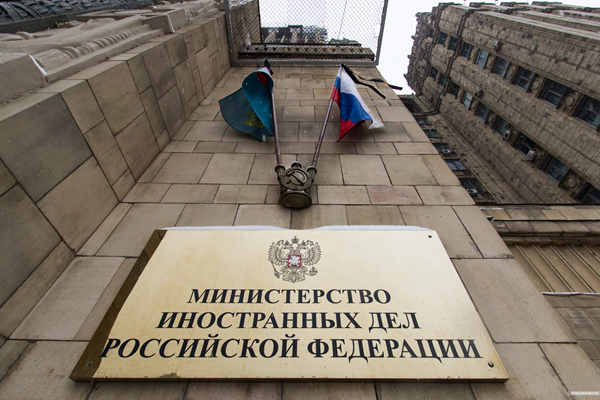Germany, Sweden and Poland expel Russian diplomats
The German Ministry of Foreign Affairs has declared persona non grata one of the employees of the Russian Embassy in Berlin, announced the representative of the German Foreign Ministry on Monday, February 8. According to him, this step was a response of the German government to the expulsion of one of the employees of the German Embassy in Moscow and diplomats of other EU countries.
The German Foreign Ministry spokesman called Moscow's decision "unjustified" and noted that the German diplomat attended the protest in Moscow to "learn about the situation on the ground" in accordance with his duties under the Vienna Convention on Diplomatic Relations.
Sweden and Poland also announced the expulsion of Russian diplomats. Swedish Foreign Minister Ann Linde said on Twitter that the Russian ambassador had been informed about the expulsion from Sweden of one of the employees of the Russian Embassy. "We have informed the Russian Ambassador that a person from the Russian embassy is asked to leave Sweden. This is a clear response to the unacceptable decision to expel a Swedish diplomat who was only preforming his duties," the minister said.
Meanwhile, members of the European Parliament condemned Russia's decision to declare the diplomats of Germany, Poland and Sweden as persona non grata. In a statement published on the European Parliament's website, the move was described as "unlawful" and "contrary to the letter and spirit of the Vienna Convention, which explicitly allows diplomats by all legal means to obtain information" about events in the country where they work.
On February 5, the Russian Foreign Ministry declared three employees of diplomatic missions of Germany, Poland and Sweden persona non grata, accusing them of participating in protests on January 23 in Moscow and St. Petersburg. The EU High Representative for Foreign Policy and Security, Josep Borrell rejected the Russian side's assertion that the actions of embassy staff were contrary to their status as foreign diplomats and called on the Russian authorities to reconsider the decision.
German Chancellor Angela Merkel called Russia's position unfounded. the German and Polish Foreign Ministry summoned Russian ambassadors, and Sweden rejected Russia's claims.
On January 23, rallies in support of the oppositionist Alexei Navalny were held across Russia. Navalny was detained immediately after returning to Russia from Germany after treatment for poisoning with Novichok nerve agent. Navalny was arrested on February 2 and sentenced to 2 years and 8 months in prison on charges of violating his probationary obligations.
